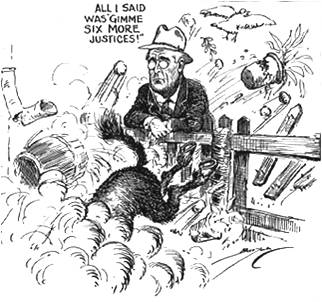1992 presidential election — Bill Clinton
Clinton carried several states that had previously been Republican or swing states in both the Northeast and on the West Coast. Most notably, the largest state California switched from being a reliably Republican state to being consistently Democratic: it has been carried by Democratic candidates ever since. Other states that switched and have remained with the Democrats since include Connecticut, Delaware, Illinois, Maine, Maryland, Michigan, New Jersey, Pennsylvania, and Vermont. In contrast, despite the fact Clinton came from the South, he only carried four of the former Confederate states: Arkansas (his home state), Louisiana, Tennessee (his vice president's home state) and Georgia, confirming it as a Republican base of support.
Since 1992, the Democratic candidate has won the national popular vote in every presidential election except 2004, suggesting some manner of national realignment away from the Republican domination of the 1970s and 1980s. This national tendency toward Democratic presidential candidates did not necessarily translate to Democratic victories in congressional elections. However Republicans remained competitive nationally, making historic gains in the 1994 and 2010 midterms, although the composition of the electorate in presidential versus midterm elections vary significantly.[19]
1994 House of Representatives and Senate elections[20]
This election is now generally seen as a realigning election by political scientists.[20] Republicans won majorities in both the House and the Senate, taking control of both chambers for the first time since 1954. In addition, control of the House continued until 2007. Newt Gingrich, who promoted a "Contract with America", successfully nationalized the campaign by coordinating races around the country. The overwhelming nature of the Republicans' victory points to a realignment; the party gained 54 seats (in a chamber of only 435), while neither party would gain more than a handful of seats in any election until 2006.
The GOP gained seats in 43 of 46 state houses. These gains continued into the next decade, so that by 2002 the GOP held the majority of state legislative seats for the first time in fifty years.[20]
Notably, the period of party decline and mass dealignment appears to have ended in the 1990s. Strength of partisanship, as measured by the National Election Study, increased in the 1990s, as does the percentage of the mass public who perceive important differences between each party.[20]
This election also indicates the rise of religious issues as one of the most important cleavage in American politics.[citation needed] While Reagan's election hinted at the importance of the religious right, it was the formation of the Christian Coalition (the successor to the Moral Majority) in the early 1990s that gave Republicans organizational and financial muscle, particularly at the state level.[21] By 2004 the media portrayed the political nation as divided into "red" (Republican) and "blue" (Democratic) states, with reputed differences in cultural attitudes and politics between the two blocs.
The Republicans made historic inroads in the Solid South where they picked up total of 19 House seats. Going into the election, House Democrats outnumbered House Republicans. Afterwards, the Republicans outnumbered Democrats for the first time since Reconstruction.[22]
Some debate exists today as to what elections (if any) could be considered realigning elections after 1932.[11] Although several candidates have been proposed, there is no widespread agreement:




